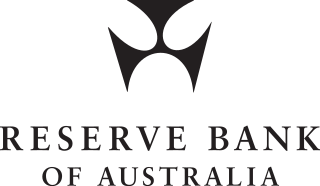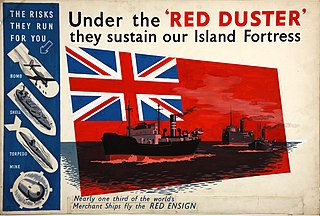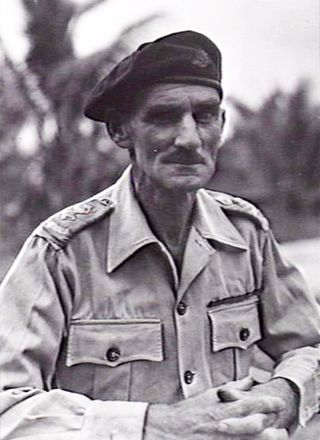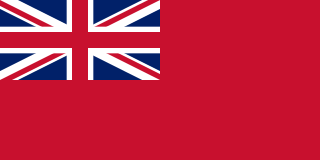
The Joint Chiefs of Staff (JCS) is the body of the most senior uniformed leaders within the United States Department of Defense, which advises the president of the United States, the secretary of defense, the Homeland Security Council and the National Security Council on military matters. The composition of the Joint Chiefs of Staff is defined by statute and consists of a chairman (CJCS), a vice chairman (VJCS), the chiefs of the Army, Marine Corps, Navy, Air Force, Space Force, and the chief of the National Guard Bureau. Each of the individual service chiefs, outside their JCS obligations, works directly under the secretaries of their respective military departments, e.g. the secretary of the Army, the secretary of the Navy, and the secretary of the Air Force.

The Ministry of Defence is a ministerial department of the Government of the United Kingdom. It is responsible for implementing the defence policy set by the government and serves as the headquarters of the British Armed Forces.

The Reserve Bank of Australia (RBA) is Australia's central bank and banknote issuing authority. It has had this role since 14 January 1960, when the Reserve Bank Act 1959 removed the central banking functions from the Commonwealth Bank.

Mark Anthony James Vaile served as the 12th deputy prime minister of Australia and the leader of the National Party of Australia. Vaile is currently a non-executive director of a number of public listed corporations.

The United States Shipping Board (USSB) was established as an emergency agency by the 1916 Shipping Act, on September 7, 1916. The United States Shipping Board's task was to increase the number of US ships supporting the World War I efforts. The program ended on March 2, 1934.

Norman Ralph "Norm" Augustine is a U.S. aerospace businessman who served as United States Under Secretary of the Army from 1975 to 1977. Augustine served as chairman and CEO of the Lockheed Martin Corporation. He was chairman of the Review of United States Human Space Flight Plans Committee.
The Minister of Shipping was a British government post created in the First World War and again in the Second World War. In 1941 it was merged into the position of Minister of Transport which was then renamed Minister of War Transport.

Australian National Line (ANL) was a coastal shipping line established by the Government of Australia in 1956. It was sold in 1998 by the Howard government to CMA CGM.
Edward "Ed" Liddy is an American businessman who was chairman of the Allstate Corporation from 1999 to 2008.
Executive Schedule is the system of salaries given to the highest-ranked appointed officials in the executive branch of the U.S. government. The president of the United States appoints individuals to these positions, most with the advice and consent of the United States Senate. They include members of the president's Cabinet, several top-ranking officials of each executive department, the directors of some of the more prominent departmental and independent agencies, and several members of the Executive Office of the President.

Lieutenant General Peter Francis Leahy, is a retired senior officer of the Australian Army, whose military career culminated with his appointment as Chief of the Army from 2002 until 2008. He has been director of the National Security Institute, University of Canberra, since October 2008.

A merchant navy or merchant marine is the fleet of merchant vessels that are registered in a specific country. On merchant vessels, seafarers of various ranks and sometimes members of maritime trade unions are required by the International Convention on Standards of Training, Certification and Watchkeeping for Seafarers (STCW) to carry Merchant Mariner's Documents.

Air Chief Marshal Sir Neville Patrick McNamara, was a senior commander of the Royal Australian Air Force (RAAF). He served as Chief of the Air Staff (CAS), the RAAF's highest-ranking position, from 1979 until 1982, and as Chief of the Defence Force Staff (CDFS), Australia's top military role at the time, from 1982 until 1984. He was the second RAAF officer to hold the rank of air chief marshal.

Penelope Anne Wensley, is an Australian former public servant and diplomat who served as the 25th Governor of Queensland from 2008 to 2014. She was previously High Commissioner to India from 2001 to 2004 and Ambassador to France from 2005 to 2008.

Air Vice Marshal Ellis Charles Wackett, CB, CBE was a senior commander in the Royal Australian Air Force (RAAF). Its chief engineer from 1935 to 1959, he served on the RAAF's controlling body, the Air Board, for a record seventeen years, and has been credited with infusing operations with new standards of airworthiness. Commencing his service career as a Royal Australian Navy cadet during World War I, Wackett transferred to the Air Force in 1923 while on an engineering course in Britain. He qualified as a pilot before completing his studies and returning to Australia, where he inaugurated parachute instruction within the RAAF and made the country's first freefall descent from a military aircraft in 1926. The following year, he led a three-month survey flight to Papua New Guinea.
Public Transport Victoria (PTV) is the brand name for public transport in the Australian state of Victoria. It was previously the trading name of the Public Transport Development Authority (PTDA), a now-defunct statutory authority in Victoria, responsible for providing, coordinating, and promoting public transport.

Charles Hector McFadyen was an Australian soldier, senior public servant and sportsman. He was a leading community figure in Canberra from inception until 1939 when he returned to Melbourne. He is best known for his time heading the Department of Shipping & Transport.

Lieutenant-Colonel Alfred Lionel Rose,, better known as Lionel Rose or Colonel Rose, was an Australian Army officer and veterinarian who served in both World War I and II. He is best known for pioneering the live cattle trade from the Northern Territory to Asia and curing cattle disease.

The Air Board, also known as the Administrative Air Board, or the Air Board of Administration, was the controlling body of the Royal Australian Air Force (RAAF) from 1921 to 1976. It was composed of senior RAAF officers as well as some civilian members, and chaired by the Chief of the Air Staff (CAS). The CAS was the operational head of the Air Force, and the other board members were responsible for specific areas of the service such as personnel, supply, engineering, and finance. Originally based in Melbourne, the board relocated to Canberra in 1961.

The Sea Transport Branch of the British Board of Trade, originally established as the Transport Department or Naval Transport Department, was a logistical branch of the Department of Admiralty responsible for the provision of naval transportation services. It underwent numerous name changes throughout its complicated history with responsibility for sea transportation, known as the Department of the Director of Transports from 1890.















